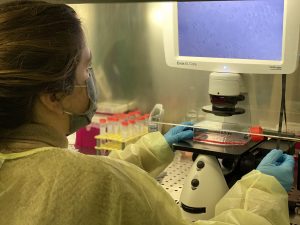For several millennia, cholera - an acute diarrheal disease that can lead to death in a few days if left untreated - devastated the Indian subcontinent. Vasco da Gama, the well-known Portuguese navigator, died of cholera in southern India in the 16th century.
Cholera is still active today in four continents, with a special incidence in Africa. The disease is already in the 7th pandemic, which has been going on since 1960. In Europe, the last epidemic occurred in Portugal in 1974, where it infected almost 2,500 citizens and killed 48.
Contaminated water and food are the main sources of the cholera agent - a vibrio (bacteria) ubiquitous in coastal waters. Once ingested in a sufficient dose, the bacteria can escape the stomach's acid barrier and colonize the intestine. If toxins are produced, a person can lose up to 20 liters of internal fluid through watery diarrhea. If these fluids are not replaced, the patient dies. The treatment is particularly inexpensive, by electrolyte replacement through the administration of an oral rehydration solution, a mixture of sugar and salts and (eventually) common antibiotics.
Lack of clean water, sanitation, hygiene, and poor health care favor the spread of the disease. The battle for eradication is far from being accomplished, an additional problem for the poorest of the poor. The Laboratory of Hydrobiology and Ecology of ICBAS studies the conditions of access to water (quality and microbiology) of the population in Guinea-Bissau, analyzes the relationship between water consumption and the onset of disease, and identifies the possible causes of contamination of this precious liquid
To know more:
– Water bags as a potential vehicle for transmitting disease in a West African capital, Bissau
– Analysis of the bacterial community composition in acidic well water used for drinking in Guinea-Bissau, West Africa
Contact: Professor Adriano A. Bordalo (bordalo@icbas.up.pt)





